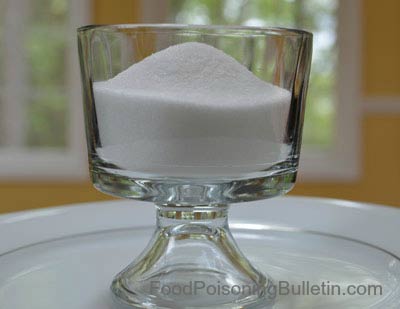A study published in the December issue of the journal Obesity has found that consumers think more information about added sugars on nutrition labels will be helpful. Food manufacturers believe that more information would simply confuse consumers.
 The study looked at 500 U.S. adults in a voluntary online survey. Most consumers, or 63%, said that knowing how much added sugar was in a food product (as opposed to naturally occurring sugar) would be helpful. Just 18% of respondents thought that adding this information would be confusing, but most of those people gave reasons “that suggest they were indifferent to the information,” according to the researchers. Those reasons included “I don’t know” and “I don’t care.”
The study looked at 500 U.S. adults in a voluntary online survey. Most consumers, or 63%, said that knowing how much added sugar was in a food product (as opposed to naturally occurring sugar) would be helpful. Just 18% of respondents thought that adding this information would be confusing, but most of those people gave reasons “that suggest they were indifferent to the information,” according to the researchers. Those reasons included “I don’t know” and “I don’t care.”
FDA wants to declare added sugar on food labels and has proposed a rule to make this a requirement. A citizen petition submitted by Center for Science in the Public Interest (CSPI) forced the FDA to reconsider the rule. Those sugars refer to sugars and syrups that are added to foods during processing or preparation. A maximal intake level of 25% or less of energy from added sugars is suggested, since some Americans have decreased intake of micronutrients when their sugar intake exceeds this level.
In addition, the 2010 Dietary Guidelines for Americans notes that there is strong evidence between children who consume more sugar-sweetened beverages and obesity. The sole source of calories in those beverages is added sugar. Solid fats and added sugars comprise 35% of American’s caloric intake.
The CSPI petition recommended that the Daily Required Value for added sugar should be 40 grams, based on the USDA’s “Food Guide Pyramid”. That is about ten teaspoons of sugar in a 2,000 calorie daily diet. Per capita consumption of added sugars in this country rose by 28% from 1983 to 1999. CSPI describes “added sugars” as sucrose, high-fructose corn syrup, corn sugar, invert sugar, and corn syrup.





I believe the reason why manufacturers think more specific labels will confuse people is because they don’t want people to know what is in its products. People will begin to really see the garbage they are eating. With more specific labels we will have the information we need to make smart choices and choose what kinds of foods we put in our bodies.